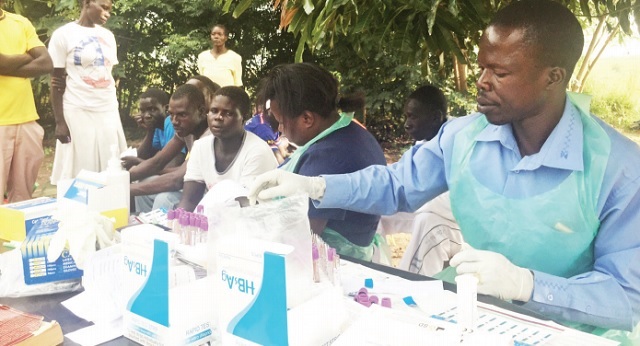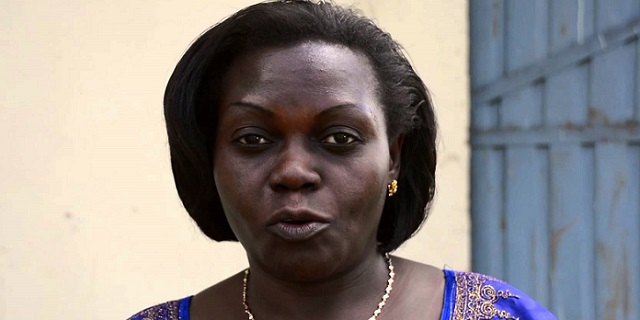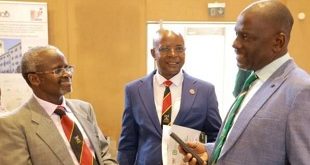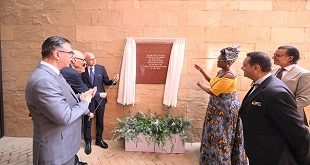
New guidelines to regulate mushrooming free medical camps
Kampala, Uganda | FLAVIA NASSAKA | As early as 9am on Feb.09, people had started gathering at Centenary Park. It was yet another ‘free medical camp’. Organized by the Mulago hospital based College of Health Sciences, people would at this camp get free checkups for cervical cancer, breast cancer, hypertension and dental care among others. Organisers of the camp were just starting to hang the banners and set up tables but people were already queuing. I sensed it could get crowded.
As Grace Kiwanuka; the Executive Director of the Uganda Healthcare Federation, later explained, “Free medical camps being attended in high numbers speaks of the fact that so many people are in desperate need of basic care”. Unfortunately, some of them do not end very well.
Two days before, for example, the Uganda Medical and Dental Practitioners Council (UMDPC) was releasing results of an audit into the death of five patients, including a prominent politician, in another free medical camp.
Led by Prof. Joel Okullo; the President UMDPC, a team of five experts had spent two months from December 2017 investigating the cause of death of the patients who were operated during a free neurosurgical camp held at Mengo Hospital in Kampala in October 2017.
The deaths sparked a public uproar which appears to have caught both the hospital and the Ministry of Health unprepared. The deaths proved to be a public relations disaster for the hospital and Ministry of Health.
When the Minister of State for Health (General Duties), Sarah Opendi, was asked to explain the deaths to members of parliament, she initially denied knowledge of such a camp happening in the country. She said they would establish whether the procedures had been carried out legally and hold those responsible accountable.
Later the Ministry issued a statement clarifying that the Council had in fact authorized the camp to take place. Despite the clarification, allegations that the doctors who conducted the complicated procedures were rookies persisted. There were even claims that the American doctors were using Ugandans as guinea pigs to test new medicine and that Mengo Hospital did not have the necessary equipment and was just testing its potential to conduct such surgeries.
But the Joel Okullo audit revealed a totally different picture. The audit reveals that the Mengo Hospital camp was in fact quite successful. The five patients that died were part of 31 patients treated and the 26 operations were successful. The Okullo team reported that the 31 were chosen from 145 patients and that they had the most complicated conditions that would have otherwise been referred abroad. They also found the team of neurosurgeons from the Duke Global Health Institute in America had conducted 11 similar camps in the country before; 10 at the Neurosurgery department of Mulago National Referral Hospital in Kampala and one at Mbarara University Teaching Hospital in western Uganda.
Prof. Michael Haglund who led the visiting team is said to have picked interest in helping Ugandans with complex brain conditions such as meningioma, pituitary tumors, and spinal cord tumors when he visited the country as a tourist in 2006. Then, he realized that many poor Ugandans were dying unnecessarily from conditions that could be treated. He in 2009 conducted his first brain surgeries on 27 patients at Mulago hospital. Later, they realised they needed to help more hospitals start conducting such surgeries.
During this latest camp according to Mengo hospital’s Deputy Medical Director Christopher Luzinda the intention was partly for the American experts to pass on skills to the country’s neurosurgeons and they did not work with only Mengo Hospital staff but had surgeons from other hospitals. He said Duke University had helped Mengo Hospital expand its Intensive Care Unit (ICU) from three to now five beds and that whatever was necessary for surgeries to be successful was in place; a reason as to why no adverse events happened on the operation table.
Reading the report, Minister Opendi said it was found that all the patients operated were taken through the ICU unit whereas others went to the High Dependency Unit. Four; including the late opposition Democratic Party stalwart, Issa Kikungwe, died of infections and embolism while in ICU whereas the other patient died after he had been discharged. Though no postmortem was done, it is said he developed severe difficulty in breathing; suspected to be a result of blood clots in the lungs.

“The procedures being complex, such deaths were expected and normal but were only exaggerated by the media,” Opendi said. She said some patients were in very bad condition as they had been referred for surgery a long time ago but they could not afford it abroad. She said under normal hospital settings some operations cost not less than Shs20 million in the country but could have cost up to Shs100 million out of the country according to the nature of a particular procedure.
As the report was being released, on Feb.07, the Uganda Medical and Dental Practitioners Council also released guidelines tightening the nut for one to organize such activities.
Under the new guidelines, anyone planning to hold such a medical camp has to:
• Notify the relevant authorities in writing of the intention
• Obtain authorization to hold the camp from UMDPC and other statutory bodies
• Ensure that the healthcare professionals to participate in the camp are registered and licensed to practice in this country by the relevant regulatory authorities.
• If the camp is being organized by an NGO or any other organization, a company profile of that organisation must be provided whereas if medical students are to hold a camp they should be under supervision by a qualified medical or dental practitioner.
Prof. Okullo talked tough about the new guidelines. He said as many companies increasingly opt to offer free medical care in camps as their Corporate Social Responsibility, some skip important precautions and put the population at risk.
He said his council will crackdown on any medical camp that does not meet the criteria set out in the new guidelines that call for vetting of participating medical practitioners through verification of their qualifications, registration status, and peer review interviews or attachment to professional associations.
Minister Opendi said the process of coming up with guidelines was started early last year. “Certain medicines are brought in the country during camps when they are not registered by the authority. We now urge them to come in and register in time at least two months before for checks to be made.”
She says when it comes to research, the Uganda National Council for Science and Technology has laid down the procedure to determine what can be used as research or not.
Kiwanuka says, however, the guidelines should be just a start that should be followed with educating the consumer. He says patients need to be educated on what a safe health camp should be like, what they should and should not expect, and if they are referred abroad who they can consult to make a decision on if it makes sense for them to make that investment. She said some patients travel abroad for treatment without a clear picture of the financial implications and full understanding of what outcomes they might get. She says some free medical camps; especially for testing, are designed to lure individuals into testing so that the organisers ; in order to recoup the costs of having the camps, can refer them for follow up checkups abroad.
Minister Opendi agrees.
“Health camps are important but we must have order,” she says.
 The Independent Uganda: You get the Truth we Pay the Price
The Independent Uganda: You get the Truth we Pay the Price


